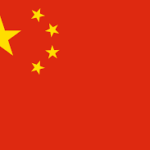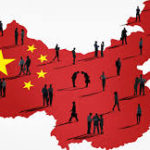 It is no secret that China is the country to reckon with in this century. In many countries, Mandarin is being taught to school children as they are being prepared to live in the future dominated by China just like the U.S.A dominated the last century. In many organizations, global corporate strategy has moved faster than global leadership development. This outcome has created some leadership problems: global companies may not have enough leaders in their growth markets or leaders with the required critical global leadership competencies in their headquarters. As outlined by Canals (2014)
It is no secret that China is the country to reckon with in this century. In many countries, Mandarin is being taught to school children as they are being prepared to live in the future dominated by China just like the U.S.A dominated the last century. In many organizations, global corporate strategy has moved faster than global leadership development. This outcome has created some leadership problems: global companies may not have enough leaders in their growth markets or leaders with the required critical global leadership competencies in their headquarters. As outlined by Canals (2014)
Globalization is driving an increased need for leaders who possess global  leadership competencies that enable them to lead effectively. As highlighted by Terrell and Rosenbusch (2013)
leadership competencies that enable them to lead effectively. As highlighted by Terrell and Rosenbusch (2013)
Here are critical leadership competencies that companies should consider in their business strategy to focus on China:
Strategic Global business knowledge and acumen. Companies need to acquire market-specific business practice, knowledge, and insights to maximize the chances of success when entering the Chinese business environment. Indeed, a global mindset is an important quality for any company that wants to do business in China. The mindset/situation congruence results in global leader creativity and boundary spanning. As observed by Clapp-Smith and Lester (2014)

Personal Global Business Leadership Network: Company executives , as global business leaders, must develop their own personal global networks focused on China which can help provide global insights, contacts, access to capabilities and resources and other necessary experiences on the Chinese business environment.
This means that the must surround themselves with local talent that can help them break deals, understand the culture and the complexities of the Chinese market as well as compensate for the language barrier for those who do not speak Mandarin Chinese.
Strategic Leadership Communication Competencies- The executives must possess the necessary language and incremental communications skills for China and context- specific activities such as delivering presentations, conducting negotiations and managing meetings in the Chinese business environment. Indeed, getting global leadership right is a huge challenge for many companies.
Because of physical distance, language, and cultural differences, global leaders face a huge challenge of generating and maintaining trust throughout the organization. The keystone of trust is the character of global leaders. Thus, an effective global business leader has the ability to maintain integrity and connect with people with different cultural norms and expectations. As outlined by Morrison and Black (2014)
Global Business Cultural Literacy Competencies- Executives need to have the ability to develop their own cultural profile, preferences, and style. This means that in order for them to become the effective global business leaders, they must acquire and practice inclusive leadership skills, cultural agility and the ability to adapt their own cultural style to that are effective in the Chinese business environment.

The distinguishing factors of critical global leadership competencies are the ability to recognize, adapt to and harness cultural diversity and manage inclusion. These critical global leadership competencies are now a prerequisite for success in a complex and fast-changing global business environment. As outlined by Jokinen (2005)
Therefore, for the companies to effectively crack Chinese business environment, there will inevitably be a need to get an executive from these organizations to relocate to China. Ultimately, companies can never really get a deal done in China without having executives with critical leadership competencies on the ground in China.
Hence, the only way a foreign business are going to ultimately be successful in China is by putting together a good leadership team with critical global leadership skills. As outlined by Perkowski (2008)….to be continued